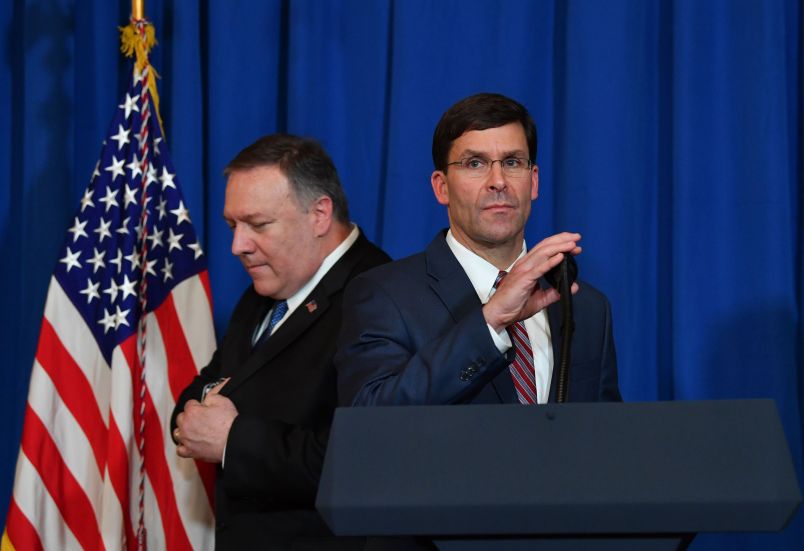For a brief moment on Monday, the Pentagon acknowledged a letter saying U.S. forces would leave Iraq.
And for a brief moment, the world was stunned. President Donald Trump, after all, had just finished threatening Iraq with sanctions if American forces were shooed out of the country. What accounted for the reversal?
Within a few minutes, the Pentagon straightened itself out. The letter declaring a withdrawal was real, but it was a draft that never should have been released publicly, military leaders said.
It all started a few minutes before 3 p.m. ET Monday, when The Washington Post’s Mustafa Salim posted a copy of a letter from Marine Corps Brig. Gen. William Seely to the Iraqi joint operations task force, announcing what appeared to be a complete withdrawal of American forces from Iraq.
#Breaking: US military tells Iraqi Joint operations command that they are preparing to move out. pic.twitter.com/yqoFiEIHBD
— Mustafa Salim (@Mustafa_salimb) January 6, 2020
In the copy of Seely’s letter that circulated online Friday, the brigadier general said that, in deference to Iraq’s sovereignty “and as requested by the Iraqi Parliament and the Prime Minister,” the U.S.-led coalition in the country “will be repositioning forces over the course of the coming days and weeks to prepare for onward movement.” The letter later described “movement out of Iraq.”
It was a reference to the resolution the Iraqi parliament approved Sunday calling for the expulsion of U.S. troops from the country, which came in response to the American airstrike that killed senior Iranian commander Qasem Soleimani outside a Baghdad airport last week.
“We respect your sovereign decision to order our departure,” Seely concluded his letter.
Before long, the Pentagon began confirming to reporters that the letter was authentic.
But then came more news: Seely’s written words didn’t represent the actual position of the United States.
Within an hour, Defense Secretary Mark Esper told reporters that there’d been “no decision whatsoever to leave Iraq.” After that, the chairman of the Joint Chiefs of Staff, Gen. Mark Milley, told reporters that the letter was a draft that should not have been released.
The letter was “poorly worded” and “implies withdrawal,” Milley said. “That is not what’s happening.” Rather, he said, the letter was meant to convey a repositioning of American troops within Iraq.
The implication in the message — that American forces were leaving Iraq after nearly two decades — was, he said, “an honest mistake.”



